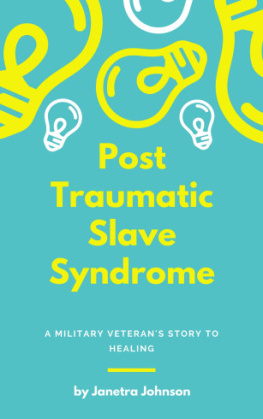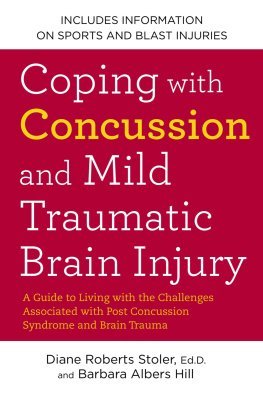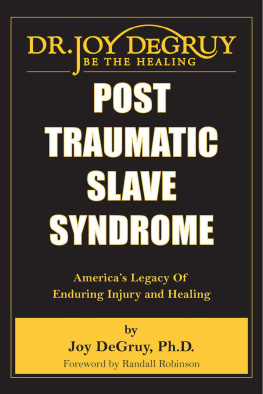Janetra Johnson - Post Traumatic Slave Syndrome: A Military Veterans Story to Healing
Here you can read online Janetra Johnson - Post Traumatic Slave Syndrome: A Military Veterans Story to Healing full text of the book (entire story) in english for free. Download pdf and epub, get meaning, cover and reviews about this ebook. year: 2017, publisher: Janetra Johnson, genre: Politics. Description of the work, (preface) as well as reviews are available. Best literature library LitArk.com created for fans of good reading and offers a wide selection of genres:
Romance novel
Science fiction
Adventure
Detective
Science
History
Home and family
Prose
Art
Politics
Computer
Non-fiction
Religion
Business
Children
Humor
Choose a favorite category and find really read worthwhile books. Enjoy immersion in the world of imagination, feel the emotions of the characters or learn something new for yourself, make an fascinating discovery.
- Book:Post Traumatic Slave Syndrome: A Military Veterans Story to Healing
- Author:
- Publisher:Janetra Johnson
- Genre:
- Year:2017
- Rating:3 / 5
- Favourites:Add to favourites
- Your mark:
Post Traumatic Slave Syndrome: A Military Veterans Story to Healing: summary, description and annotation
We offer to read an annotation, description, summary or preface (depends on what the author of the book "Post Traumatic Slave Syndrome: A Military Veterans Story to Healing" wrote himself). If you haven't found the necessary information about the book — write in the comments, we will try to find it.
Inside the book, the author, Janetra Johnson walks her readers through the process of how she dealt with those financial thoughts of slavery and the Jim Crow era. The book was written from the perspective of a veteran of African descent, who had experienced Post Traumatic Slave Syndrome (P.T.S.S.) while serving in the California Air National Guard and has managed to experience a considerable reduction of these symptoms over the years. The book tells the story of how she found out about P.T.S.S. and what other military veterans should look forward to when visiting a military therapist to discuss racial thoughts of slavery and the Jim Crow era.
WHAT IS POST TRAUMATIC SLAVE SYNDROME?
According to Wikipedia, Post Traumatic Slave Syndrome: Americas Legacy of Enduring Injury and Healing (PTSS) is a 2005 book resulting from years of historical and psychological research by Dr. Joy DeGruy (ne Leary), Ph.D. PTSS describes a set of behaviors, beliefs, and actions associated with or, related to multi-generational trauma experienced by African Americans that include but are not limited to undiagnosed and untreated Post Traumatic Stress Disorder (PTSD) in enslaved Africans and their descendants. PTSS posits that centuries of slavery in the United States, followed by systemic and structural racism and oppression, including lynching, Jim Crow laws, and unwarranted mass incarceration, have resulted in multigenerational maladaptive behaviors, which originated as survival strategies.
ABOUT THE AUTHOR:
Author, Janetra Johnson uses her experiences from her personal and professional life to create a series of military books based on her real-life court case: Janetra Johnson v. Departments of the Army and Air Force et al. The books are written in the first person to give the reader a firsthand account of what the veteran saw during the California National Guards largest financial disaster. Johnson is a military veteran who served on active duty in the California National Guard and earned her Masters degree in Business Administration. She lives in Fresno, California with her three children.
Janetra Johnson: author's other books
Who wrote Post Traumatic Slave Syndrome: A Military Veterans Story to Healing? Find out the surname, the name of the author of the book and a list of all author's works by series.






